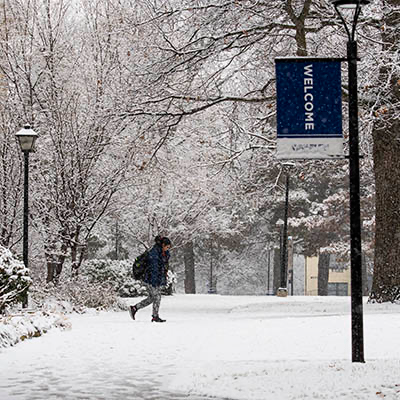
As people experience cold temperatures and scattered snow this winter, it is important to know how to keep up with vehicles. Students do not choose the conditions they drive in, so they’ll need to be prepared for them. Cold weather can damage a vehicle if proper measures are not taken.
Chris Enos, chief of police at Washburn University, gave some tips to have the best practices in these bad weather conditions. When temperatures are low, look out for the likeliness of your car having trouble starting.
“So the biggest thing that we see is batteries, really. And the trick to your battery is don’t let it sit for too long, especially out in the cold. If you can go out to your car and take it out every once in a while, maybe every day or two. Even if you don’t have anywhere to go, if you can just run it for a while, maybe drive for a few blocks, just to kind of keep that battery charged up,“ Enos said.
Snow can be a hassle for those on the go. Enos stresses it’s imperative to always wear your seatbelt, but especially around this time. He also suggests leaving ahead of time, so you’re not rushing. Take a little extra time to warm up your car and make sure your windshield and the roof of your vehicle are clear of snow that could impair your vision while driving or impair the vision of others.
“Make sure you’re always wearing your seatbelt this time of year, because even if you drive perfectly, that doesn’t mean somebody else isn’t and is going to get you. So safety first,“ Enos said.
As the snow begins to melt, it’s important to be cautious of black ice. It can become a never-ending cycle of melting snow and slick roads. Enos’ best piece of advice is making sure you’re leaving a good distance between you and the car in front of you. Typically, the best distance is two car lengths away until you’re able to get a good feel for the roads.
Campus police are always available to help jumpstart your vehicle, deal with low tire pressures and flat tires.
“So if you don’t know who else to call, call us, and we’ll get you to the people that can,” Enos said.
For more information, contact campus police. If they are unable to help, they will guide students to someone who can.
Edited by Jeremy Ford and Jayme Thompson











